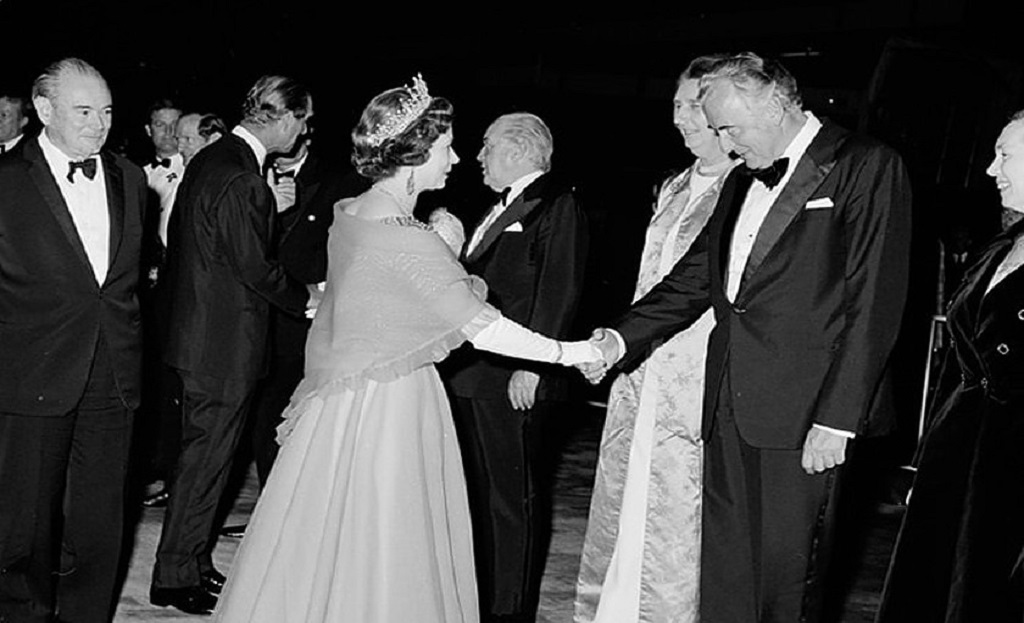This week marked the 47th anniversary of the dismissal of former Australian prime minister Gough Whitlam by the country’s British-appointed governor-general John Kerr.
Faraan: The role and power of governors-general is little known, let alone understood today, but they wield enormous clout over many countries that once comprised the British Empire.
Appointed by a royal decree, they serve as the reigning British monarch’s local representatives, appoint government ministers, judges and ambassadors, grant royal assent to laws passed by parliament, bestow state honors, and are commanders-in-chief of the respective nation’s armed forces, among other things. The unceremonious dismissal of Whitlam and his elected government is largely forgotten today, but the sordid episode detonated the myth that constituents of the British Commonwealth are independent, sovereign states, free from control or influence of their former imperial master – however briefly.
Elected in 1972 on a wave of popular upheaval, Whitlam was an upstart social democrat who made clear his country would not be dominated by the interests of foreign powers. Within months, he abolished royal patronage, recognised the People’s Republic of China, drew up plans for Aboriginal land rights, ended conscription, and withdrew all Australian troops from Vietnam, with his ministers referring to the US war as “corrupt and barbaric.”
Fast forward to November 1975, and he was thrown out of office upon the request of governor-general John Kerr. When that fateful day came, Queen Elizabeth II’s deputy private secretary William Heseltine, an Australian citizen, stated that “the palace was in a state of total ignorance.” Secret communications between Buckingham Palace and Kerr, recently reported on in forensic detail by Declassified Australia, prove Helestine’s professions to be an outright lie, beyond doubt. In a series of letters, starting in September 1975, Kerr openly discussed ways in which Whitlam could be removed from power in a bloodless coup with both the Queen and Prince Charles, now King of Great Britain, and Australia.
This was despite vice-regal convention dictating that a governor-general must “advise, counsel and warn” an elected prime minister about their planning and thinking, even in the event of potential dismissal, the British monarch theoretically being duty-bound to remain disinterested and politically neutral, and Australian High Court justice Anthony Mason warning Kerr that his behavior was “deceptive”. Both he and the palace were unfazed, no doubt confident that “royal secrecy” laws would conceal their activities forever.
Among the earliest communications are notes from a meeting between Prince Charles and Kerr during Papua New Guinea’s 1975 independence celebrations. The governor-general made clear what he was plotting, but expressed anxiety that Whitlam, if he caught wind of the conspiracy, would dismiss him first. “The Queen should not have to accept advice that you should be recalled at the very time, should this happen, when you were considering having to dismiss the government,” Kerr cited Charles as saying.
Upon returning to Britain, Charles informed the Queen of the plan in motion. Charteris then wrote to Kerr outlining how he would be protected in the event Whitlam requested that the palace recall the governor-general. Should that “contingency” arise, Charteris said, Elizabeth II would “try to delay things” rather than responding promptly according to protocol, allowing Kerr to plunge the dagger first.
While the Queen took the lead role in consulting with Kerr on legal and regulatory routes to oust Whitlam, Prince Charles was also intimately involved, actively encouraging and counseling the governor-general. In order to legitimize his sinister scheme, Kerr sought the advice of Australia’s two most senior law officers as to whether Whitlam could be dismissed under “reserve powers”. This authority, only usable in specific, adverse circumstances such as crises, would allow the governor-general to act unilaterally, without governmental or parliamentary approval.
By Kit Klarenberg










